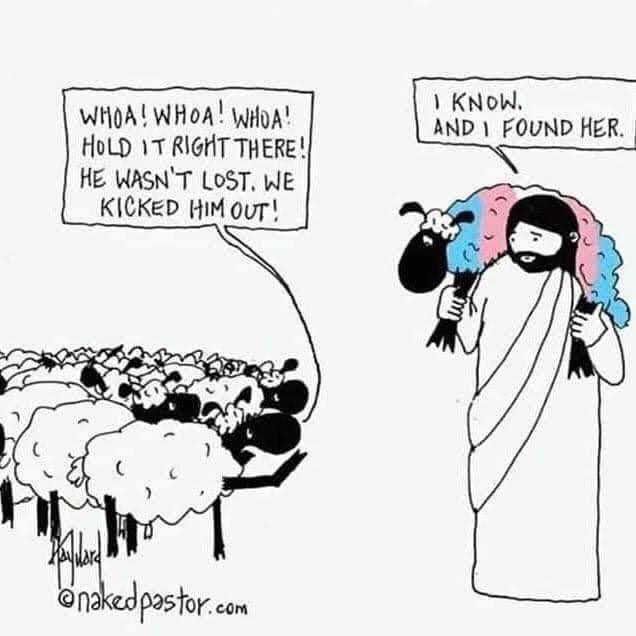
It is shocking (and quite disturbing) to me, that some faith groups still believe that they are called to a mandate of exclusion, instead of inclusion, on any of a wide number of otherwise protected identifiers, including gender and sexuality. Over and over, to the best of my knowledge, faith group and their major texts call for love of neighbour, welcome of the stranger, living simply and service to others. Nothing in that suggests, or allows, discrimination based on who we are at our core, or an acceptance of destruction of creation. And yet, some faith groups still fight for the right to discriminate, and avoid talking serious action on the climate crisis – and it must end.
Major Evangelical Adoption Agency Will Now Serve Gay Parents Nationwide
NYT

At a time when we are facing multiple global crises (including a pandemic and a climate crisis), faith groups should be leaders, setting an example of how to care for all of creation – including all people, animals, and the environment. Instead, some groups still put their energy into excluding others, and denying women the right to a full range of reproductive health services, as though that is the way to a better world for everyone.
A justification that I sometimes hear from others is that something can be found somewhere in one’s ancient texts to justify discrimination. In response, I would suggest that many people only take texts literally on things that are life-limiting for others, without requiring us to change ourselves. I’m suggesting a different approach (along with countless others).
Want to take the Bible or other ancient texts literally? How about focusing on the countless times that we are told not to accumulate wealth? Living simply requires a lot more from us than telling someone else how we think they should live their lives.
Think swapping out “My faith says that you should be straight” and replacing it with “My faith says that I should be less wealthy, live in a smaller home, eat more lentils, help others more, create less garbage and drive less often.”
Likewise, the admonition to not kill or steal features in many faith texts: how about putting our energy into banning militaries and the theft of natural resources (and extreme wealth discrepancies, locally and globally) that is contributing to climate change? The list could go on and on…
For faith groups to be relevant into the future, we need to, collectively, move beyond this idea that we can live our own lives as we wish, while excluding others, and destroying the planet. We can, and must do better, together. We can do it. 🙂


……………………….

